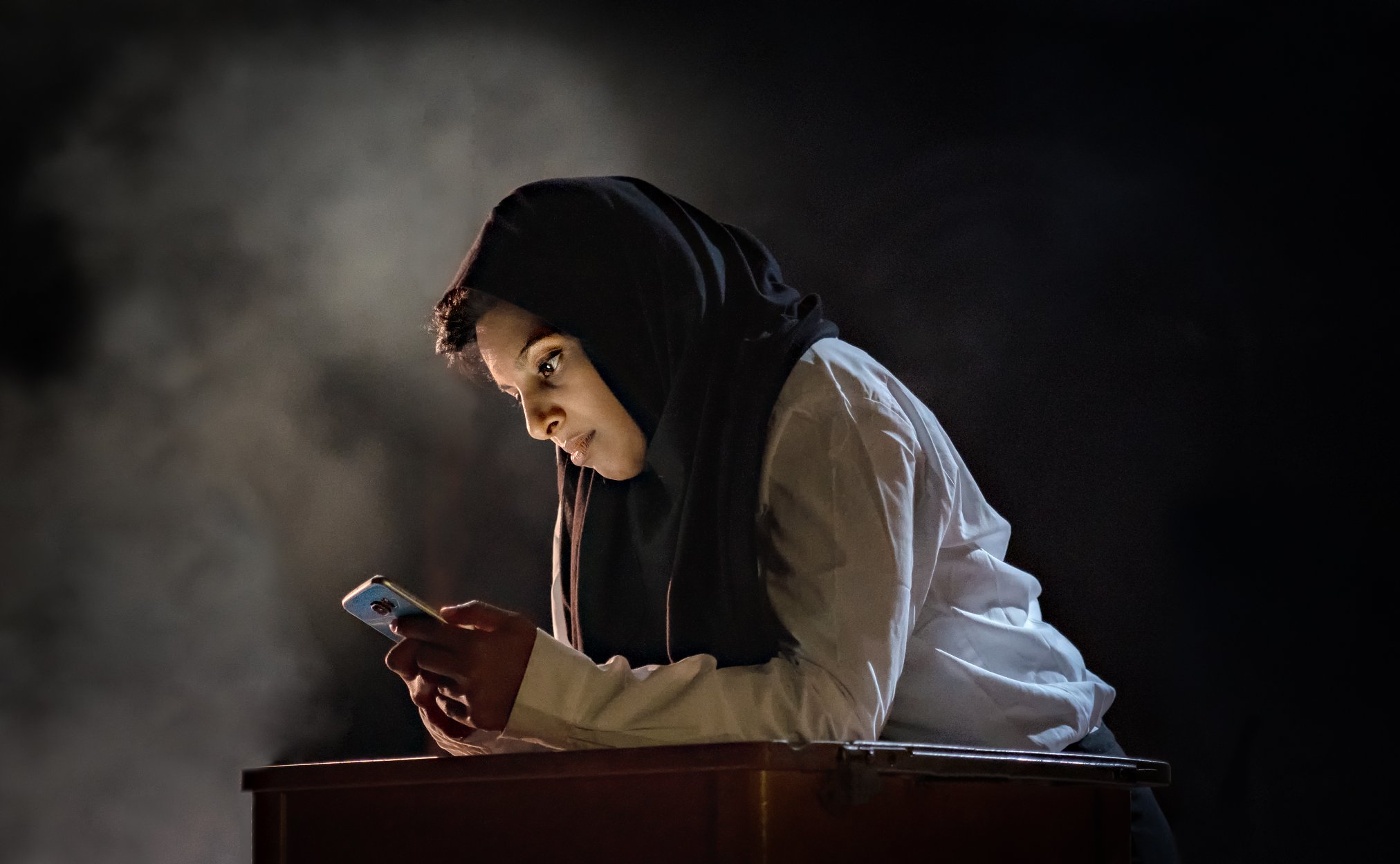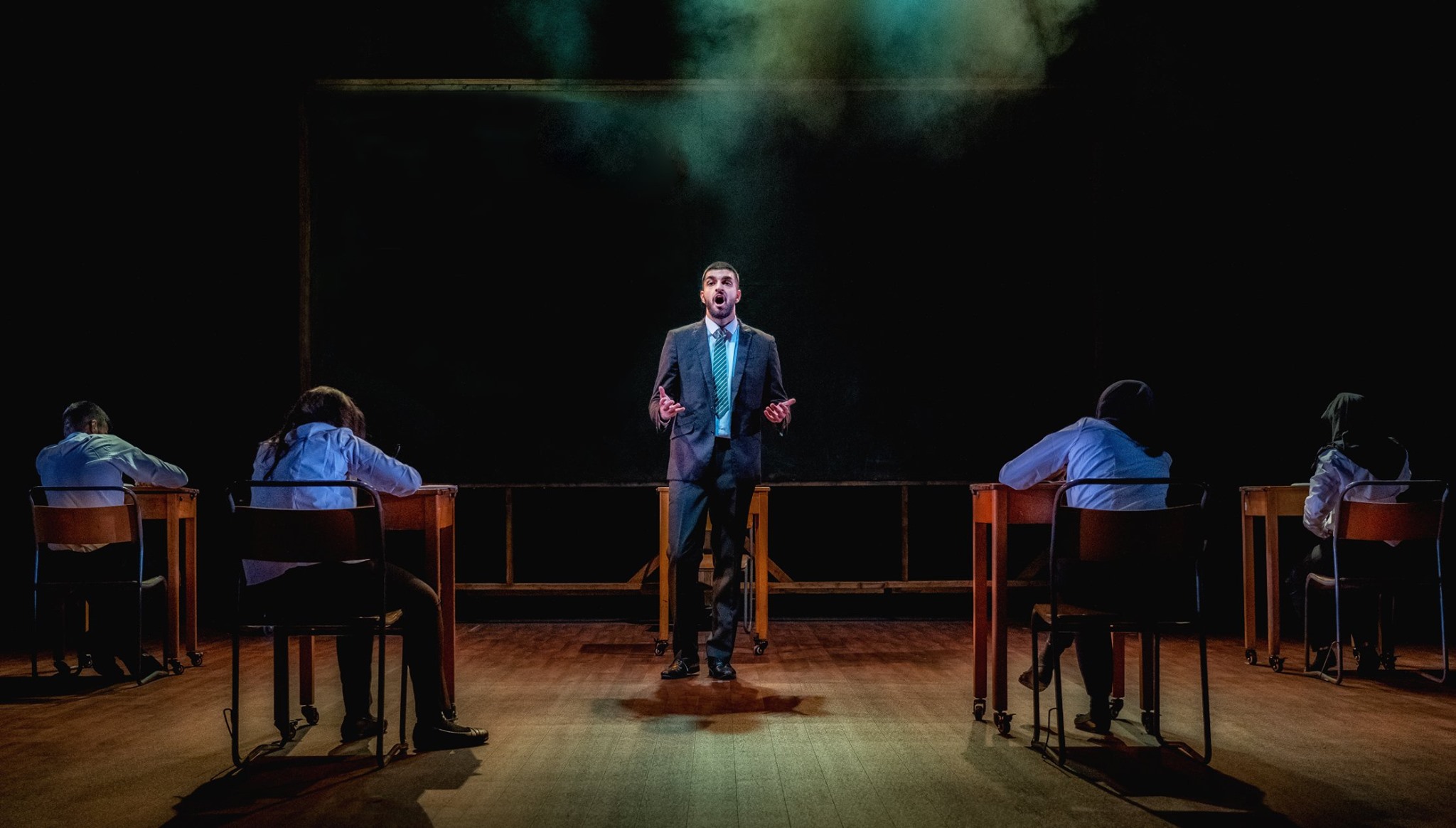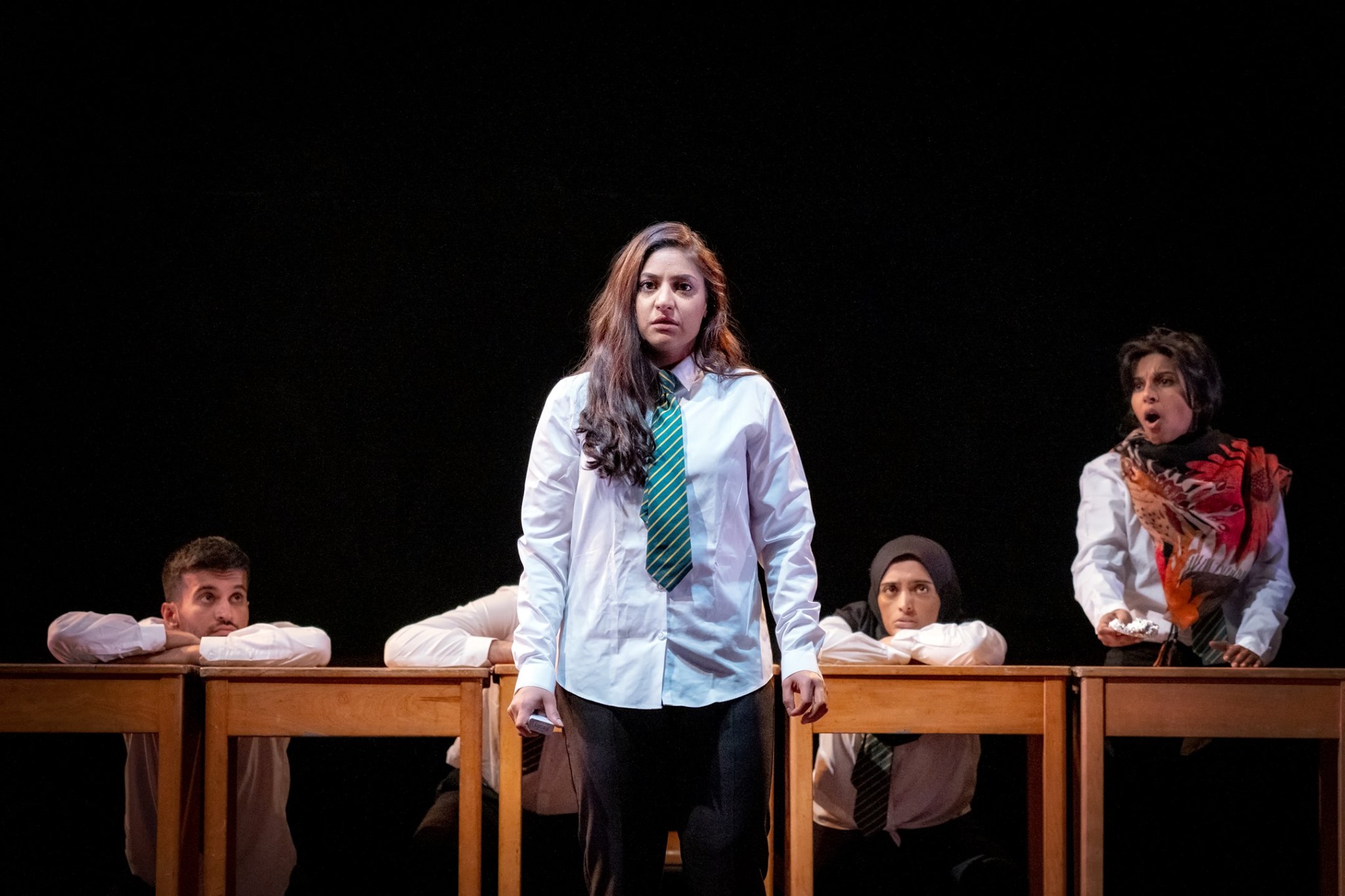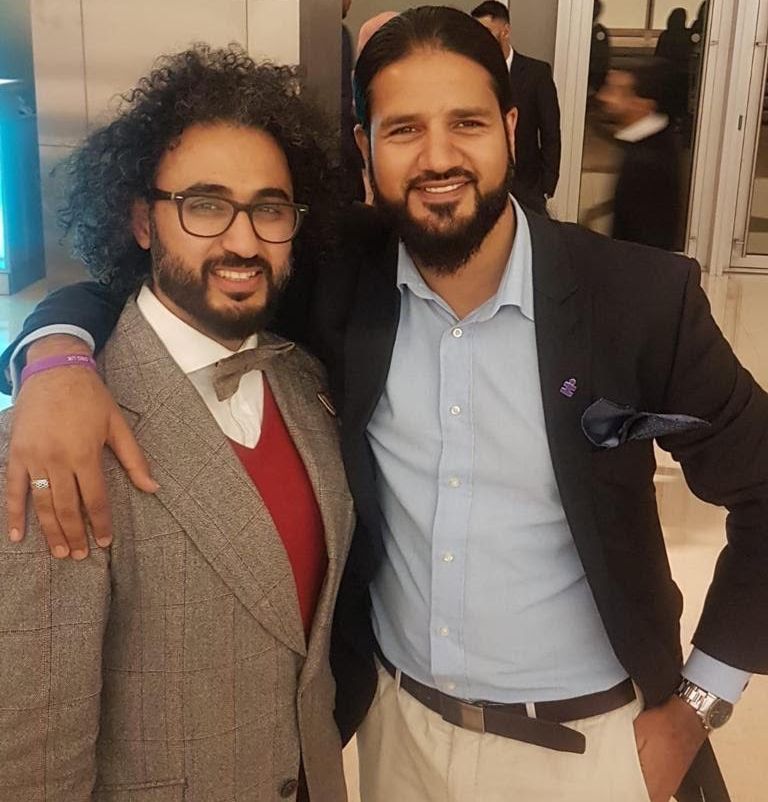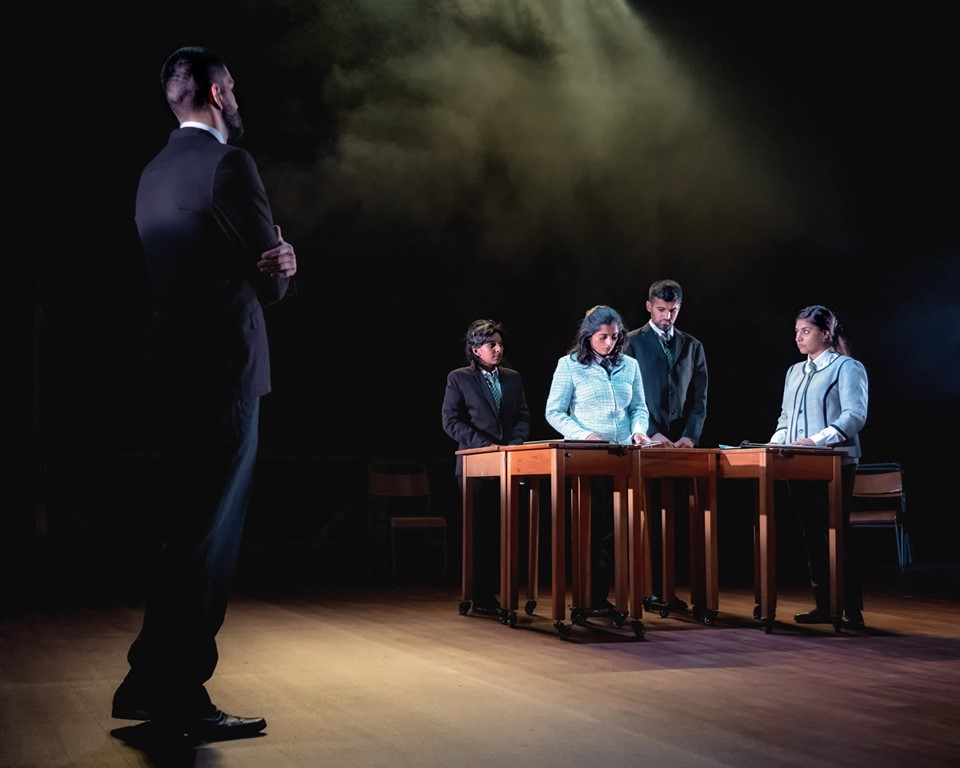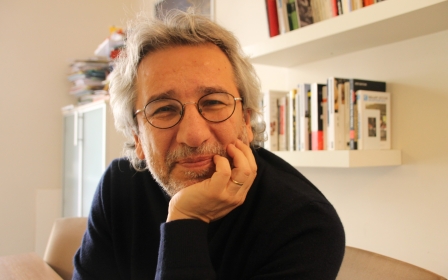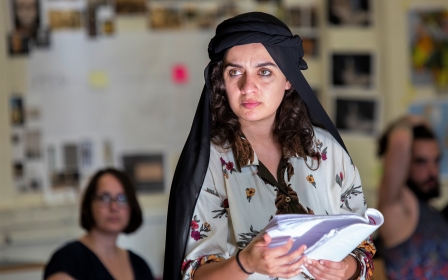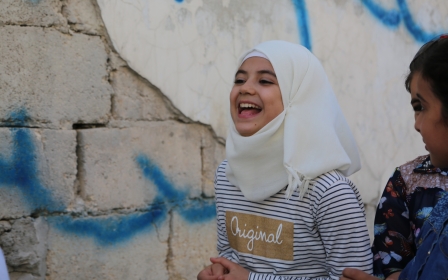'Big bad Muslim': The play that allowed Trojan Horse teachers to start healing
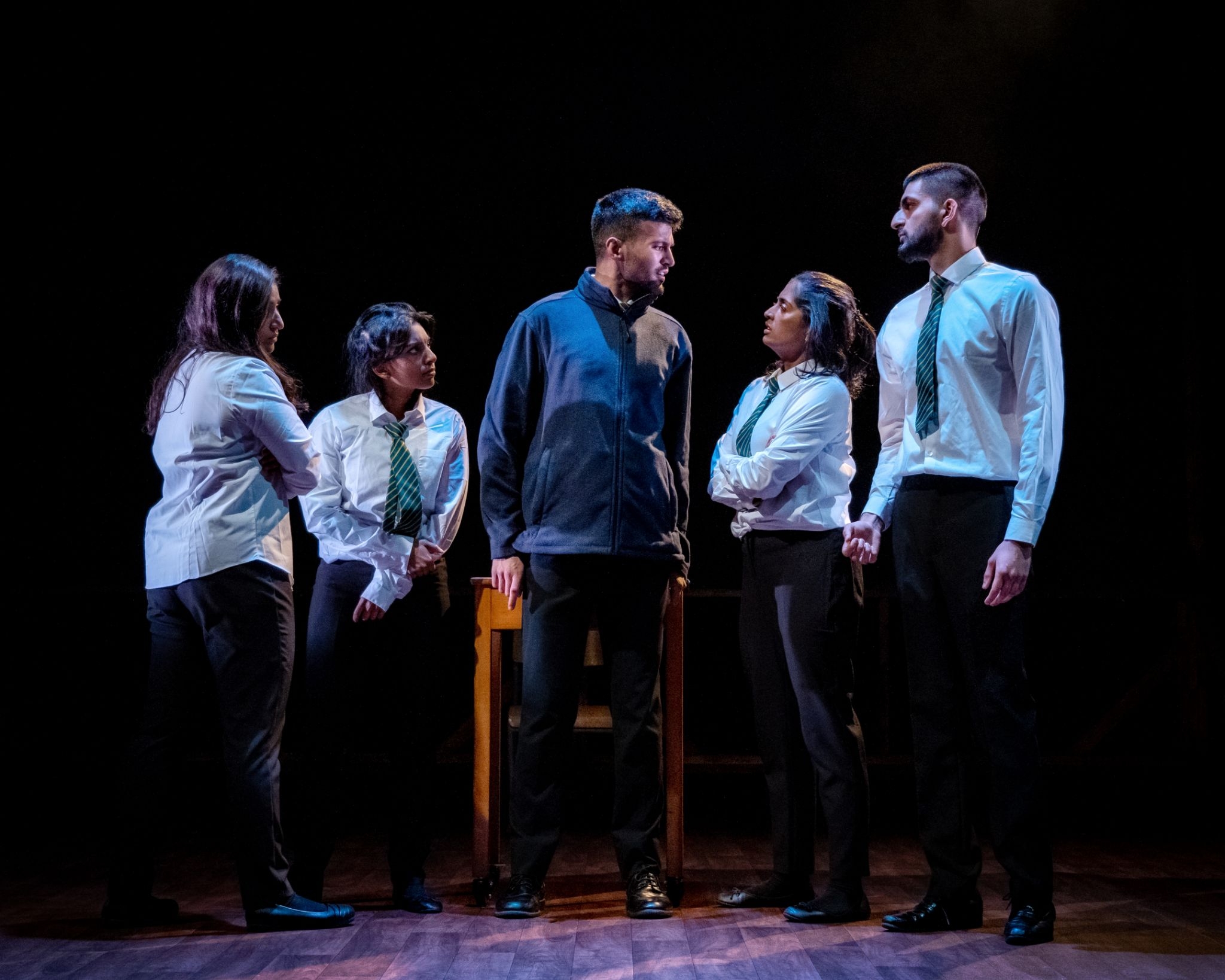
In February 2014 the myth of the wooden Trojan horse took on newfangled notoriety when an anonymous memo alleging an “Operation Trojan Horse” conspiracy made national headlines in the UK.
The photocopied letter outlined a five-stage plan for Muslim teachers and governors to “Islamify” several state schools in the east of the city of Birmingham.
Six years on, Trojan Horse, a powerful production by documentary theatre company Lung, has returned this year for a second run in an 11-city tour across the UK.
After debuting at Edinburgh Fringe Festival in 2018, it received the Fringe First Award 2018 and the Amnesty International Freedom of Expression Award the same year.
New MEE newsletter: Jerusalem Dispatch
Sign up to get the latest insights and analysis on Israel-Palestine, alongside Turkey Unpacked and other MEE newsletters
The play forms part of a wider reassessment of the original case – elements of which are still contested. One of those consulted during the production process is Professor John Holmwood, an expert witness in the professional misconduct cases and author of Countering Extremism in British Schools: The Truth about the Birmingham Trojan Horse Affair.
Rather than unravelling the mystery of the letter itself, the play, like Holmwood’s book, captures a snapshot of the consequences borne by the students and teachers who became collateral damage in a political-tug-of-war.
‘I’m the Trojan horse’
Trojan Horse follows five characters, including Rashid, an Urdu teacher accused of radicalising students; Elaine, a former head-teacher; Farah, a teenage student navigating between her British and Muslim identity; Tahir, the vilified chairman of governors at the school; and Claire, a newly elected councillor.
The drama situates the Trojan horse affair in a classroom at Park View Academy in Birmingham (now Rockwell Academy), one of the schools at the centre of the scandal.
Before the Trojan Horse affair, Park View was an extraordinary success story in a deprived area of Birmingham where 70 percent of the mostly Muslim pupils at the time were eligible for free school meals. It transformed academic attainment of schoolchildren at what was once one of the worst schools in the country, to one with an outstanding Ofsted inspection rating.
Following the letter’s release, a 2014 report commissioned by former education secretary Michael Gove and written by Peter Clarke, the former head of the Metropolitan police’s counterterrorism unit, directly accused a number of teachers and governors of indoctrinating schoolchildren with “segregationist attitudes and practices of a hard-line and politicised strain of Sunni Islam”.
'That’s what I felt like. That I am that terrorist'
- Razwan Faraz, former deputy head teacher at Nansen Primary
In the opening scene, Rashid, whose character is an amalgamation of three teachers involved in the scandal, stands facing the audience. Dressed smartly in a black blazer and checked tie, he declares:
“I’m a terrorist. I’m an extremist. I am the Trojan Horse. I infiltrated schools to push my hard-line, Islamist agenda. I shouldn’t be near your children. Don’t let me through your school gates. Big bad Muslim man gonna huff gonna puff gonna blow your school up.”
These are the exact words that had been spoken in interviews with the play’s writers, Helen Monks and Matt Woodhead, by Razwan Faraz, the former deputy headteacher at Nansen Primary, one of the Birmingham schools implicated in the affair. Faraz was dismissed in 2014.
“That’s what I felt like. That I am that terrorist,” said Faraz, speaking to MEE. “We weren’t [really] exonerated in the public court. You’re innocent until proven guilty, unless of course you’re Muslim.”
From classroom to courtroom
The plot moves from councillor Claire’s office, as she recounts how she regarded the letter as a hoax, before it was passed on to the Home Office by Birmingham council, and spun out into the explosive consequences of the media furore once the letter was leaked.
Inspectors lurk in classrooms, including Rashid's Urdu lessons, to the ire of Farah and her classmates. A huge blackboard looms in the background of the set bearing the title of each scene in both English and Urdu, a visual reminder of the cultural dichotomy that foreshadows the events recounted. There are also headsets for audience members wishing to listen to a simultaneous translation into Urdu.
Between scenes, the stage transforms into different sets, from classroom to courtroom, as the wooden school desks are rapidly reassembled like a Rubik’s cube by the cast.
There is an air of urgency as scenes skitter between Rashid’s classroom, media press conferences where Tahir is swarmed by journalists, and courtrooms where lawyers from the Department of Education begrudgingly admit to flawed evidence that would later see the case collapse.
While Gove, who led the government inquiry into the scandal, is not present physically, his ghost lingers through amplified recordings of media soundbites in the background. Whenever these are played, the cast appear to be stunned into listening, like deer caught in headlights.
Real life testimonies
Two years in the making, Monks and Woodhead said they based the production on over 200 hours of real-life testimonies with counsellors, governors, students, and teachers. The play was a verbatim production in which the exact words from the interviews were used to write the script.
The project began in 2016 when the two playwrights met Tahir Alam, the former chair of governors who was also embroiled in the scandal, and one of the headteachers who would later inspire Elaine’s character.
Speaking to Middle East Eye, Woodhead said the “wildly different perspectives” on what really happened compelled him to dig a little further.
Central to the play’s production was the contribution of Faraz, and Inam Malik - another former teacher at the centre of the scandal. Both of them lost their jobs soon after the story broke. The turning point for Woodhouse was hearing how their lives were destroyed.
“The whole point of this play is that it’s not about radicalisation. It’s the complete opposite. It’s about communities standing together, shoulder to shoulder,” said Woodhead.
“Seeing the scale of the injustice, but also having the blessing of having Inam and Razwan collaborate with us made us go, ‘OK we’ll take a risk’.”
Despite the report’s damning accusations, Faraz was cleared of professional misconduct by an independent panel in 2017 along with four other senior school leaders. Malik’s lifetime ban on teaching was overturned by the High Court in October 2016.
An act of catharsis
Trojan Horse comes across as an exoneration of some of the teachers caught in the crossfire.
Both Faraz and Malik have been touring with Lung to take part in post-show discussions with theatre audiences across the country to share their story.
Malik, who was formerly head of Modern and Foreign Languages at Park View school, spoke of the catharsis he experienced seeing his story depicted on stage, and the “blatant injustice” that spurred him to share his story publicly.
“I’m still living the trauma. Each time I watch the play, I relive those moments in my classroom,” he said. “The play is verbatim, so the words that I uttered, the trauma comes back, the wounds reopen. But in a funny way it allows us to heal at the same time.”
The scandal left a lasting impact on their personal, professional and financial wellbeing. The lack of support Malik says he received from even some of his closest acquaintances was one of the most painful consequences of the whole affair, leaving him “heartbroken”.
“I lost my career. I lost my livelihood. I went through so much trauma that I would suffer from severe headaches that would last two to three days on end,” he said.
“Even close friends and associates distanced themselves. I think they were afraid for their own careers.”
Calling out 'double standards'
The play has been criticised by some, including British political adviser Nick Timothy, as an “attempt to rewrite history”, depicting a fiction in which the Islamophobia card is used in order to “whitewash homophobia, bullying, extremism and nepotism”.
The teachers in Trojan Horse are portrayed as playing a positive, pastoral role, for example through Rashid’s nurturing character. In one particular scene, the teenage student Farah discloses that she is a lesbian. “Please don’t tell my dad, sir!”, she pleads, to which Rashid pauses briefly, and then gently agrees.
But the play doesn’t shy away from all the accusations levelled against the implicated teachers. It pulls skeletons out of the Trojan horse closet, addressing the contentious issue of homophobic messages shared on WhatsApp groups by some of the teachers who were implicated in the scandal.
In one scene, Farah, appearing crest-fallen, reads a homophobic WhatsApp message sent on a group by her teacher Rashid after it was leaked by the press.
While the writers were keen to address the controversies surrounding the case, Woodhead argues that some of the responses were “disproportionate” - that if the British prime minister can openly make homophobic comments and be shielded in the name of “freedom of speech”, why was the same excuse not applied to Rashid?
“It’s about calling out double standards,” said Woodhead. “Our prime minister can talk about 'bank robbers' and 'bum boys'. That man is allowed to be prime minister. Meanwhile a teacher who says one thing on one WhatsApp group is demonised by the media.”
A riposte to ‘British values’
At the heart of the play is an interrogation of the so-called “fundamental British values” allegedly threatened by the "plot". In 2014, Michael Gove introduced the teaching of British values within school curriculums in response to the Trojan Horse scandal. These collective values were defined to include “democracy, the rule of law, individual liberty, and mutual respect and tolerance of those with different faiths and beliefs”.
'There is always this dichotomy of being British and being Muslim'
- Trojan Horse actor, Mustafa Chaudhry
“The Trojan horse was an answer to a question,” Faraz told MEE. “Do we as children of immigrants belong to this country? Can I belong authentically, or do I belong with a condition? The verdict was, 'Belong in this country, but only under condition'."
Growing up in Birmingham as a British Muslim, Mustafa Chaudhry, the actor who portrays Rashid, said that most of his teachers growing up were not from a similar religious or cultural background.
“There is always this dichotomy of being British and being Muslim, this idea that you’re caught between two worlds,” he said. “If I’d have had teachers like the ones depicted in the play, it would have helped me a lot.”
The play concludes as arrestingly as it begins. Before Rashid repeats his bitter invocation, “I am a terrorist” for the final time, Farah tears open her GCSE results letter to see what future lies ahead. In her final monologue she diagnoses the nebulous definition of “British values” as she locks eyes with the audience.
In a voice dripping with derision, she asks: “What the hell are they?”
The Trojan Horse is showing at a number of UK venues until 28 February. A bilingual edition of the play is published by Oberon Books.
Middle East Eye delivers independent and unrivalled coverage and analysis of the Middle East, North Africa and beyond. To learn more about republishing this content and the associated fees, please fill out this form. More about MEE can be found here.


